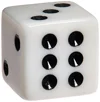BYNOS
The name of this file is written: BYNOS, and when called may sound like "by the numbers," since that is what it means. Where the sound and the sense of a language come together we may have poetry or prose or the presentation of an equation. We should not be surprised, however, to hear the name of this file called in a way that may sound like "by" the common preposition indicating agency or proximity, here remembering that this sound may be represented in a variety of spellings in American English, let alone other languages, English or eidetic (Esperanto, phonetic, or in any notational system read aloud--the phoneme to lexeme inspired by melopoeia, the Muse of...Melopeoia (look it up in a book: E.R. Curtius, European Literature and the Latin Middle Ages p. 242 is where I landed).
The connection with macaronics, macaroni, Yankee Doodle, seeing James Cagney as George M. Cohan yesterday on the tube, Memorial day being celebrated on the Monday of the first live rain out ABC telecast of the Indy, in "Yankee Doodle Dandy," for which, after a decade of appearing as a tough guy, Gatsby, among other names in the SF Chron feature article on page 37 "What's in a Name? Strange Puns: Memory Lane, meet Mary Louise Pantzaroff," by John Gross of the New York Times--with a photo of Groucho Marx, who, as the legend informs us, "was Rufus T. Firefly in 'Duck Soup," (also, curiously, a restaurant in Sacramento connected with Denise Sanchez' grandmother, who I met the other day, and who remembers when CSUS was a peach orchard)--this date, Tuesday, May 27, 1986, the 11th anniversary of a disaster colossal enough to be included in the 1986 DISASTERS Calendar, c. 1985 Stoller Publications Ltd., namely "Flood destroys Bugs" carrot patch 1975) Cagney (among the latest and greatest) gets an Oscar for hoofing; the routine was shown on the Oscar program.
A sample of macaronic language, a mix of Old English and Latin
Macaronics, Mots d'heures. gousses. rhames, are among the allowable transformations of the Qabala, or of Robt. Graves' ollamhs, ollaves, bards or however they were called, generation after generation of scribes, who as shamans, passed it on to those who were capable of receiving the teaching--and so have a look at all the boys AND the girls since the equipage for the passion of the mind, and not necessarily in the load of the womb or as laden upon the brunt of the broad shoulders. Why somesuch is what must have been intended by our Foundling Fathers, who like the shepherds upon the sides of the local sacred mountain, as on the outskirts of Thebes, the destruction of which broke one of the principal strands of the Greek Civilization's thread of magico/cultural transmission, others of which may have been kept twining over time at Eleusis through the time of Plutarch and Delphi in the memory of Michelangelo--although Charles de Tolnay would have her manic gaze be that of the Sibyl from Cumae.
Painting of the Sibyl of Cumae
New paradigms for the Present Generation of Children (OMASTERS), as in ferinstance when you turn the Great Beast upside down and 999 becomes 666 or vice versa, setting Megatherion on his ass---curious phrase, for who was it set upon an ass and never a horse but Jesus on his entry into Jerusalem, as per Simone Martini of the Languedoc, the truffles and trouveres, TRB. Well we all know that the devils of time are the gods of yore. So in The Wicker Man and the von Foerster principle of filppety applied to the plot.
Again, the gods of greed and commerce may soon enough see their feet being washed and turnout to be made from clay rather than gold, become mud and oooze ready for another reincarnation in the cycles of life up from the mud (von Meier) with a muddy face as Buddy Arion (of Arian as of the first heretics) then undergrounding it to bud and flower again among the Celts and Afghanistan, recapitulation of the Primo Kulturtrager, Oannes, as cited in Intelligent Life in the Universe.
Where will the "developers," exploiters, colonialists, miners, loggers and rip-off artists be placed in the Tarot parade of the Present Generation of Children, when they call their names?
BY THE NUMBERS
AH, what are the numbers songs?
All the real truths are in the tunes
How do you think this will go with the PGC-OMASTERS?
"Ricky don't loose than number..."
Not counting songs like "Pennsylvania 6-5000."
How, meanwhile, can we talk to our own mother?
Representation of the Hindu Goddess Durga
What does society do and feel to its mother, the Earth? How are we honoring this oldest Goddess, Durga as her name is called in some parts of India, such as in the red temple with the tank of water in which much was washed out of the current flow, to be sure, but still composed of the waters of the sacred river Ganges in probably the oldest city still teeming with masses of humanity, many come there to "Now die, die, die, die, die."
Quotation from Shakespeare, Midsummernight's Dream, ACT V, Scene I, 297, after which comes that brilliant line of Demetrius, of such consequence, perhaps, as appreciated by Arensberg if not Duchamp, and just possibly explaining why a die was only put in one of the three exempli of the 1916 Assisted Ready-made, A bruit secret:
"No die, but an ace, for him; for he is but one."
And the even snappier reparte of Lysander,
"Less than an ace, man; for he is dead; he is nothing." (299)
[The last phrase implies i, the imaginary value, one of the five ways of conventionally representing the idea of unity using the notations of natural numbers--by which we understand the four combinations of plus or minus / real or imaginary, and zero]
Curtius suggests that the "inharmonious personality" of Teofilo Folengo (one of the great troubador poets among Ariosto's contemporaries) "inner discord is reflected in the linguistic form which he chose for his epic parody Baldus (first published in 1517)--macaronic Latin 27. His Muses fed him on macaroni and polenta:
Non mihi Melpomene... [for the epic, Calliope; comedy, Thaleial]
Imboccare suum veniant macarone poetam
Dentque polentarum vel quinque vel octo cadinos.
The macaronic epic remained a thing apart, an episode. But it illuminates the intellectual crisis of the period, as the intellectual crisis of our day is illuminated by our contemporary macaronic prose epic, James Joyce's Finnegans Wake."
But when did polenta, corn of the Indians, maize, granturco arrive in the troubador lands of Italy? By what route of trade? The seed connection? Turks? And who really brought the compass West? Anyway, most peoples found they could live and work under the Turks much easier than they could under other empires, kings or churches. When that ceased to be possible (and finally in Europe, after 1683 in the Balkans, thanks to the Russian army and Prince Eugene of Savoy), then some workers and also some professionals, such as cartographers--since geography was among the leading sciences of the 16th century--would find other patrons elsewhere, such as in Venice where their cousins lived, etc.
The Muses are listed by name in Robert Graves White Goddess, p.391. BYNOS is an anagram for SNOB(B)Y. Well now, if we have introduced a rule allowing us to go on doubling letters, we can get down to BYSNYS, or even BYSSYNYSS. "By the names," or according to how the names are called is, however, quite a different matter from "By the numbers."
Let the basic reference text for BY THE NUMBERS or BYNOS be: N. J. A. Sloane, A Handbook of Integer Sequences, Academic Press, New York and London, 1973.
I would be very interested to know how some of the smartest people around who appear willing to attempt to communicate using the ordinary language of American English think about the ways in which we are to talk to our mothers. Do they have opinions as to whether we should tell the truth, for example, even about matters of life and death. Well then, if NOT to one's mother, then to whom? And about whose death, indeed? Our mother's? Our symbolic/real REAL mother, the Earth? Mark the change in people's consciousness about ECOLOGY since Paul Ehrlich and a few others started publishing information. A plasama physicist, John Holdren, then established the discipline at the University of California at Berkeley (Energy and Society ER 100). The "ER" is not for Elizabeth Regina.
Now for a respite with my present Dame of Fancy, Liz Dexia, the macaroni-gobbler herself...
Kurt von Meier
May 27, 1986





